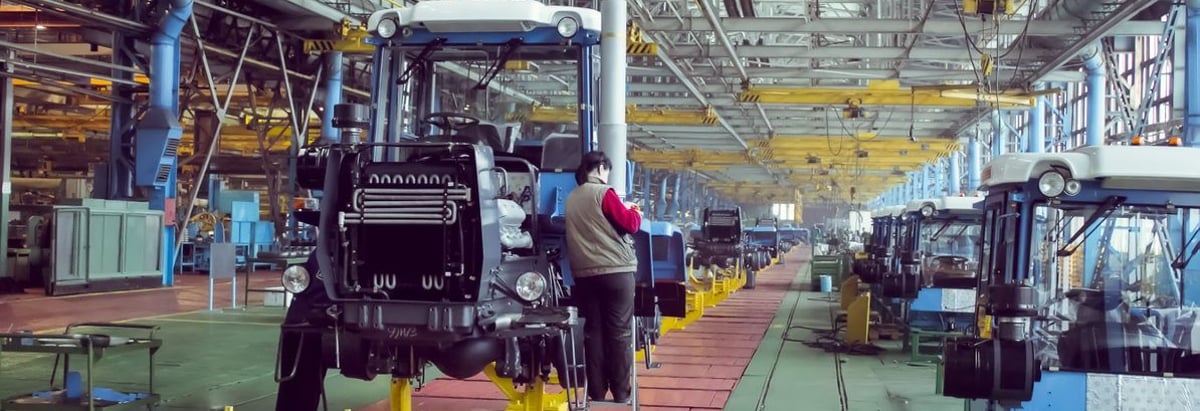Stock Analysis
We Think Jain Irrigation Systems (NSE:JISLJALEQS) Is Taking Some Risk With Its Debt

The external fund manager backed by Berkshire Hathaway's Charlie Munger, Li Lu, makes no bones about it when he says 'The biggest investment risk is not the volatility of prices, but whether you will suffer a permanent loss of capital.' It's only natural to consider a company's balance sheet when you examine how risky it is, since debt is often involved when a business collapses. Importantly, Jain Irrigation Systems Limited (NSE:JISLJALEQS) does carry debt. But the more important question is: how much risk is that debt creating?
When Is Debt Dangerous?
Debt is a tool to help businesses grow, but if a business is incapable of paying off its lenders, then it exists at their mercy. In the worst case scenario, a company can go bankrupt if it cannot pay its creditors. However, a more common (but still painful) scenario is that it has to raise new equity capital at a low price, thus permanently diluting shareholders. Of course, plenty of companies use debt to fund growth, without any negative consequences. When we examine debt levels, we first consider both cash and debt levels, together.
View our latest analysis for Jain Irrigation Systems
What Is Jain Irrigation Systems's Debt?
The image below, which you can click on for greater detail, shows that Jain Irrigation Systems had debt of ₹39.4b at the end of September 2023, a reduction from ₹69.2b over a year. And it doesn't have much cash, so its net debt is about the same.
How Healthy Is Jain Irrigation Systems' Balance Sheet?
Zooming in on the latest balance sheet data, we can see that Jain Irrigation Systems had liabilities of ₹42.7b due within 12 months and liabilities of ₹14.5b due beyond that. Offsetting this, it had ₹738.9m in cash and ₹21.6b in receivables that were due within 12 months. So its liabilities outweigh the sum of its cash and (near-term) receivables by ₹34.8b.
When you consider that this deficiency exceeds the company's ₹33.8b market capitalization, you might well be inclined to review the balance sheet intently. Hypothetically, extremely heavy dilution would be required if the company were forced to pay down its liabilities by raising capital at the current share price.
We use two main ratios to inform us about debt levels relative to earnings. The first is net debt divided by earnings before interest, tax, depreciation, and amortization (EBITDA), while the second is how many times its earnings before interest and tax (EBIT) covers its interest expense (or its interest cover, for short). Thus we consider debt relative to earnings both with and without depreciation and amortization expenses.
Jain Irrigation Systems shareholders face the double whammy of a high net debt to EBITDA ratio (6.0), and fairly weak interest coverage, since EBIT is just 1.1 times the interest expense. The debt burden here is substantial. The good news is that Jain Irrigation Systems improved its EBIT by 6.2% over the last twelve months, thus gradually reducing its debt levels relative to its earnings. When analysing debt levels, the balance sheet is the obvious place to start. But you can't view debt in total isolation; since Jain Irrigation Systems will need earnings to service that debt. So when considering debt, it's definitely worth looking at the earnings trend. Click here for an interactive snapshot.
Finally, a company can only pay off debt with cold hard cash, not accounting profits. So it's worth checking how much of that EBIT is backed by free cash flow. In the last three years, Jain Irrigation Systems created free cash flow amounting to 17% of its EBIT, an uninspiring performance. For us, cash conversion that low sparks a little paranoia about is ability to extinguish debt.
Our View
To be frank both Jain Irrigation Systems's net debt to EBITDA and its track record of covering its interest expense with its EBIT make us rather uncomfortable with its debt levels. But at least it's pretty decent at growing its EBIT; that's encouraging. We're quite clear that we consider Jain Irrigation Systems to be really rather risky, as a result of its balance sheet health. For this reason we're pretty cautious about the stock, and we think shareholders should keep a close eye on its liquidity. There's no doubt that we learn most about debt from the balance sheet. But ultimately, every company can contain risks that exist outside of the balance sheet. These risks can be hard to spot. Every company has them, and we've spotted 1 warning sign for Jain Irrigation Systems you should know about.
Of course, if you're the type of investor who prefers buying stocks without the burden of debt, then don't hesitate to discover our exclusive list of net cash growth stocks, today.
New: Manage All Your Stock Portfolios in One Place
We've created the ultimate portfolio companion for stock investors, and it's free.
• Connect an unlimited number of Portfolios and see your total in one currency
• Be alerted to new Warning Signs or Risks via email or mobile
• Track the Fair Value of your stocks
Have feedback on this article? Concerned about the content? Get in touch with us directly. Alternatively, email editorial-team (at) simplywallst.com.
This article by Simply Wall St is general in nature. We provide commentary based on historical data and analyst forecasts only using an unbiased methodology and our articles are not intended to be financial advice. It does not constitute a recommendation to buy or sell any stock, and does not take account of your objectives, or your financial situation. We aim to bring you long-term focused analysis driven by fundamental data. Note that our analysis may not factor in the latest price-sensitive company announcements or qualitative material. Simply Wall St has no position in any stocks mentioned.
About NSEI:JISLJALEQS
Jain Irrigation Systems
Manufactures and sells micro-irrigation systems in India, Europe, North America, and internationally.

